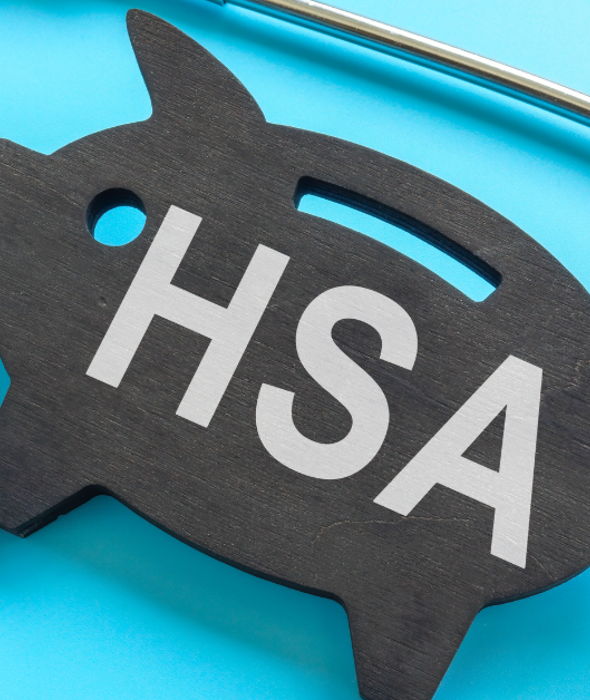
Share this Post

Need help with your money or investments? Book a consultation to learn more about working together.
Can an HSA Be Used to Pay for Medicare Premiums?
Health Savings Accounts (HSAs) are among the most powerful and tax-advantaged tools available in personal finance.
They offer a unique triple tax benefit: contributions are tax-deductible, growth is tax-free, and withdrawals are tax-free when used for qualified medical expenses.
But what happens when you transition to Medicare? Can you still use your HSA? And more specifically, can you use it to pay for your Medicare premiums?
The short answer is: Yes, but with some important rules and limitations.
Understanding How an HSA Works
Before diving into Medicare, it’s helpful to understand the basics of an HSA.
To contribute to an HSA, you must be enrolled in a high-deductible health plan (HDHP). Contributions are tax-deductible, and the funds in your HSA can be invested and grow tax-free. Withdrawals for qualified medical expenses (everything from doctor visits to prescriptions) are also tax-free.
An often overlooked benefit of the HSA is that there’s no "use it or lose it" rule. Unlike Flexible Spending Accounts (FSAs), your HSA funds roll over year after year and can be used well into retirement.
What Happens to Your HSA When You Enroll in Medicare?
Once you enroll in Medicare, usually at age 65, you can no longer contribute to an HSA.
This is an important point. Contributions to an HSA must stop the first month you are enrolled in any part of Medicare, including Part A (which is often automatic if you’re receiving Social Security benefits).
However, you can continue to use the funds in your HSA for qualified expenses, including certain Medicare premiums.
Which Medicare Premiums Can You Pay with an HSA?
Here’s where it gets a bit nuanced.
You can use your HSA funds to pay for the following:
- Medicare Part B premiums (the portion that covers doctor visits and outpatient care)
- Medicare Part D premiums (prescription drug coverage)
- Medicare Advantage (Part C) premiums (if you opt for an all-in-one Medicare plan)
However, you cannot use your HSA to pay for Medigap premiums (Medicare Supplement Insurance). These are the supplemental plans designed to cover out-of-pocket costs that traditional Medicare doesn't cover.
This distinction is important. If you plan to purchase a Medigap policy, those premiums will need to be paid out-of-pocket or from other savings, not your HSA.
Can You Reimburse Yourself for Medicare Premiums?
Yes, you can reimburse yourself from your HSA for Medicare premiums you've paid out-of-pocket, assuming they’re eligible (like Part B or D).
Just keep clear records of the payments and make sure the reimbursement happens in the same tax year, unless you're using HSA funds to reimburse yourself for expenses incurred in a prior year when the account was active and eligible.
What About Your Spouse’s Medicare Premiums?
If your spouse is enrolled in Medicare and you have an HSA in your name, you can use your HSA to pay for their qualified medical expenses, including Medicare premiums.
This is a great way to stretch the value of an HSA, especially if one spouse has built up a significant balance.
Strategic Use of an HSA in Retirement
HSAs can be a smart part of your retirement planning strategy.
Once you’re no longer eligible to contribute, the account can still play a valuable role in covering healthcare costs in retirement. In fact, some people intentionally let their HSA balance grow by paying current medical expenses out-of-pocket and saving receipts. Later in life, they reimburse themselves tax-free, potentially years after the expense occurred.
This strategy can effectively turn your HSA into a tax-free retirement account for medical costs.
What Happens If You Use HSA Funds for Non-Medical Expenses?
After age 65, if you withdraw HSA funds for non-medical expenses, the 20% penalty goes away. However, the withdrawal will be taxed as ordinary income, similar to a traditional IRA.
This means that while you should prioritize medical uses for your HSA, it does offer some flexibility if you find yourself in need of extra cash during retirement.
Important Timing Considerations
If you're planning to retire and sign up for Medicare mid-year, be cautious about when you stop contributing to your HSA.
Because Medicare Part A can be retroactive for up to six months (if you're over 65), you could accidentally over-contribute and face penalties if you don't plan ahead.
Consider stopping HSA contributions at least six months before your Medicare enrollment date to avoid this issue.
The Bottom Line
So, can an HSA be used to pay for Medicare premiums?
Yes, but only for specific parts of Medicare. Part B, Part D, and Medicare Advantage premiums are all fair game. Medigap premiums are not.
Understanding how to use your HSA strategically in retirement can help you stretch your healthcare dollars and minimize taxes. If you’re approaching Medicare age, it’s a good time to review your HSA strategy and make sure you’re using this valuable tool to its fullest potential.

